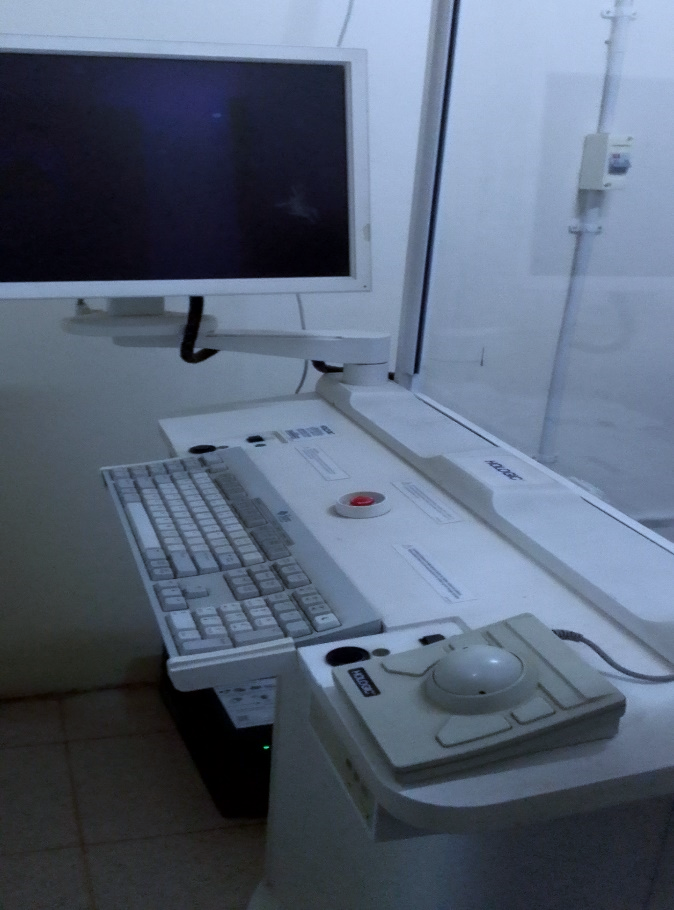By Kebba Ansu Manneh
Mahawa Njie, Public Relations Officer (PRO) of the Pharmaceutical Association of the Gambia (PAG) has expressed fears that very soon the country may run out of drugs because of the new medicines testing protocols introduced by the Ministry of Health.
He noted that the new testing measures if left unchecked will also lead to the bankruptcy of pharmacies and their eventual closure.
The PRO of the Pharmaceutical Association of the Gambia (PAG) made this disclosure in an exclusive interview with The Voice Newspaper on Monday 28th 2022, disclosed that the new protocols place high-cost testing charges on the shoulders of pharmacies and may lead to the high-cost of drugs and pharmaceutical supplies at the detriment of poor and vulnerable people living in the country.
“We are very concerned that within a very short period The Gambia will run out of medications the reason is that there are new regulations that is telling importers that you cannot bring in medications without a certificate of analysis and this certificate of analysis is given to people who are directly buying from the manufacturers. We all know that The Gambia is a small country and with the conditions in place, most Gambian Pharmacies don’t have that financial power to buy directly from the manufacturing companies,” Mahawa Njie explained why the Gambia may soon run out of drugs.
He added: “We cannot buy from Pharmaceutical Companies where you have to buy at least 5000 or 10000 types of one product. Pharmaceutical products are perishable, they have a very short lifespan and if one is to bring 5000 or 10000 types of a product it is going to be expired in your hands before you sell it and eventually leads to bankruptcy.”
He continued that Pharmaceutical products coming mainly from Europe are not freely distributed in the market without authorization and approval. Europe has specialised bodies that ensure that Medicines are qualitatively controlled, tested, and certificated before distribution into the markets.
“If these products are fit for consumption in Europe and UK, I see no reason why they cannot be consumed in the Gambia but if we (PAG) are told without a certificate of analysis we cannot sell these drugs in the Gambia that means no more European products will be sold in the Gambia.
“We will not have European products in the Gambia because as wholesalers we cannot provide a certificate of analysis because we are not buying directly from manufacturing companies due to our financial status and scope of the Gambian markets,” PRO Njie lamented.
. He stressed that “The other issue we are facing right now as importers is the exorbitant sum of money added to the drug test products, we are told every product imported into the country has to be tested and the testing fee has to be paid for by the importer. I don’t know of any country that is doing this, what I know is if you bring in a container they usually do random testing by taking samples that they conduct a test on but now what they said is all products have to undergo testing the likelihood of drugs going to expired before sales are highly unavoidable.”
According to him, with the current status the amount of money paid by the importer for the drugs testing is more than what they are buying drugs from the wholesalers in UK and Europe, observing that if importers cost all that is being spent to bringing drugs in the country, medications will become unaffordable to the Gambian population.
PRO Mahawa Njie also revealed that his association has raised their concerns with the West African Pharmaceutical Council whose representatives visited the country recently, noting that the Council also engaged stakeholders in a bit to reaching on a common ground that will ensure the availability of drugs as well as the continuous operation of the pharmacies as service providers. He added that it will be equally important for the government also to establish a bilateral agreement with countries doing testing for Gambian drugs in a bit to remove the high charges of unsustainable testing fees on the neck of the importers.
This medium also spoke with one local Pharmacy proprietor who recounted similar revelations as narrated by PRO Mahawa Njie, affirming that the country is heading to a crisis of lack of drugs and medications.
He alleged that the crisis is the handy work of the Minister of Health and his technocrat who are bent to punish pharmacies operator ordering their drugs from the UK, Europe, and America for the crimes of the Importers bringing drugs from India.
“I think the Minister is trying to punish Pharmaceutical product importers from the UK, Europe, and America for the crimes committed by Indian Pharmaceutical product importers. Any drug coming from the UK, Europe, and America are all tested and certified before it can be distributed anywhere in the world, the Minister and his team know that but they are still defiant to ensure that they beat all importers with the same stick for a crime committed by few,” he disclosed.
He went on, “currently most of our drugs have been under quarantine for more than 8 weeks now and still Ministry of Health cannot provide us with testing results to be able to sell it to the public. Every day our customers are coming and asking for eye drops for glaucoma, heart medications, blood pressure medications, cancer medications, cough mixtures for children (English types), and fever medications which are all available with us but we cannot sell them because of testing protocols which in turn is having severe effects on the lives and livelihoods of Gambians.”
According to him, the Ministry of Health is exorbitantly charging $1, 000 for each product to be tested meaning if someone’s total consignment cost about $10,000, and has six different products you have to pay $60, 000. So, this payment, he said is unnecessary for products coming from the UK, Europe, and America to be pre-qualified before they are ordered into the country.
The Voice Newspaper spoke to an insider at the Ministry of Health who described the new testing protocols as a scam meant to cover up the companies ordering contaminated drugs from the Indian market. The insider affirmed that drugs coming from the UK, Europe, and America are not distributed in the markets clandestinely but are subjected to various forms of tests and certifications that must be fulfilled before any distribution. He revealed that medicines manufactured in the UK are distributed via a UK-licensed supply network, which is governed by the Medicines and Products Healthcare Regulatory Agency (MHRA). He noted that all Pharmaceutical companies have to register and license with the MHRA as a legal obligation before they are allowed to operate in the UK.
“Before you are licensed by MHRA, all distributors or wholesalers have to comply with Good Distribution Practices (GDP), and equally all distributors or wholesalers are required by law to only purchase from manufacturers or distributors that comply with Good Manufacturing Practices (GMP).
“The GDP and the GMP certificates are designed to simplify the process and therefore take away any need or requirement to provide additional documentation or certificate for each product,” our insider disclosed.
In his words “I believe the whole issue is a scam meant to provide a cover-up for the contaminated drugs coming from India by the Minister and his technocrats. They fully know that no importer can order drugs from UK, Europe or the USA without compliance and are only subjecting those pharmacies importing drugs from Europe, UK and America for no justifiable reason.”
He affirmed that a drug shortage may soon hit the country, especially with the current drug testing protocols in place as well as the long duration of the testing period. He explained that these conditions will equally make drugs unaffordable to the poor and vulnerable sector of society as it may lead to an increment in the prices of drugs.
He calls on the President of the Republic Adama to intervene in the stand-off for the interest of the people of the country who are the final consumers, arguing that pharmacy shelves are going empty and dry day by day due to prolong quarantine of medicines as well the slow pace of testing that is conducted in Ghana and other western nations.
Isatou Sowe, a native of Sinchu Baliya, and Mariama Jallow, a native of Bakau both spoke with our reporter, disclosing that they were out to purchase medicines for their sick parents but cannot get one. Mariama Jallow explained to The Voice Newspaper that she was out to buy the drug prescribed for her sister by doctors at the Edward Francis Small Teaching Hospital (EFSTH), but she visited a couple of Pharmacies before coming to Step-Stop Pharmacy that is also out of the Conceived Drug.
Isatou Sowe, who met with our reporter at the gates of Banjul Pharmacy, Westfield also recounts that she was out to fetch a specific drug for her 80-year-old mum who is currently nursing severe pain, but she too couldn’t buy the Tramadol drug because of its inflated price that is now costing D1,500. They both called on the government of President Adama Barrow to intervene and resolve the crisis in the interest of the Gambians who are finding it difficult to secure medications.





